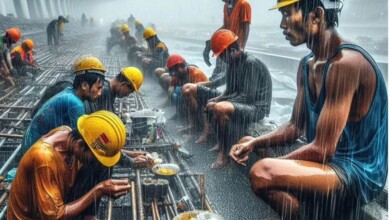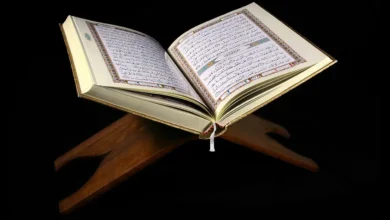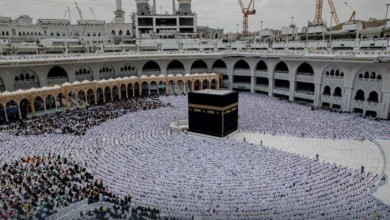The hierarchy of human pursuits (Part IV)
By Yusuf Bulafu
Assalam alaykum warahmatullahi wabarakatuh
Cont’d …
Prestige and wealth: The mirage of status
After the pursuit of social acceptance and once one has mastered how to fit in, or even stand out, the next common aspiration often becomes status. It is no longer just about being liked or followed; it becomes about being respected. The desire shifts from social approval to societal recognition. This is where the pursuit of prestige begins.
Prestige is a pursuit of perceived significance. It is not necessarily about who one is, but how one is seen. It concerns associations of things like where one studied, where one lives, what one drives, what one holds, what one holds, what phone one holds, and what titles or credentials are attached to one’s name. In many cases, the value of a person becomes inseparable from the institutions, labels, or symbols they are connected to. And the irony is striking prestige claims to elevate the individual, but it often reduces them to their affiliations.
You can observe this in how people speak about themselves. The name of a university is mentioned before the content of their ideas. The brand of a car or the size of a house is emphasized before the quality of character within. Even clothing, particularly designer items, is marketed not for comfort or utility, but for the logo that quietly, or sometimes loudly, declares, this person matters. The phone case, the handbag, the label on a suit jacket, they are not chosen merely for function, but for what they signal to others.
It is not that there is anything inherently wrong with possessing fine things or being associated with reputable institutions. The problem lies in allowing these things to define one’s worth. When identity becomes dependent on image, substance often suffers. Prestige becomes a mask, one that must be constantly polished, updated, and protected. And maintaining this mask is costly, not just financially, but psychologically and spiritually.
Adjacent to prestige, and often intertwined with it, is the pursuit of wealth. Wealth provides access, it enables the accumulation of symbols that confer status. But more than that, for many, it becomes a pursuit in its own right. It represents control, independence, and validation. The accumulation of wealth in modern life, is widely accepted as a measure of success.
Unlike the earlier pursuits, wealth demands even more sustained effort. It may require education, strategic thinking, discipline, and sacrifice. But what makes it deceptive is the belief that once wealth is secured, fulfillment will follow. In reality, the pursuit of wealth that is not guided by a higher purpose often generates its own kind of emptiness. It becomes a numbers game without end.
What is often overlooked is how deeply wealth, like prestige, entangles a person with external value systems. One becomes what one owns and that one is taken seriously if financially established. And yet, none of these markers guarantee wisdom, or integrity. They create a sense of importance that is vulnerable to collapse. Market shifts, job losses, or even shifts in social values can render these symbols meaningless almost overnight.
Moreover, when status and wealth become central pursuits, ethical clarity begins to blur. People begin to measure their lives not by what they contribute, but by how much they accumulate. Decisions are made not on the basis of truth or morality, but on what is profitable or respectable in appearance.
A life shaped by prestige and wealth is often outwardly impressive and inwardly hollow—unless it is grounded in purpose. When these tools are used to serve others, to uphold justice, or to uplift communities, they are transformed. But when they are end in themselves, they become burdens: heavy to carry, fragile to maintain, and ultimately unfulfilling.
Those who seek a life of true meaning must therefore ask: Am I valuable because of what I am connected to? Or because of what I truly am? And if all the titles and possessions were stripped away, what would remain?
To be continued …






